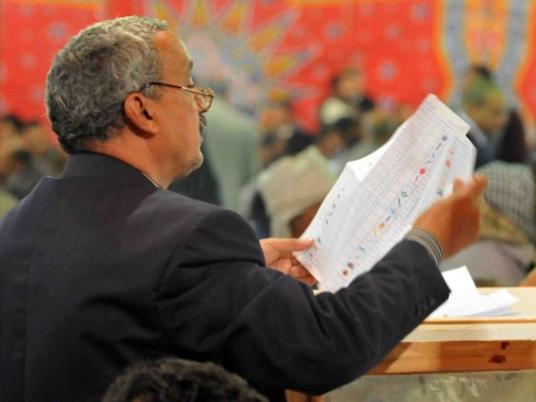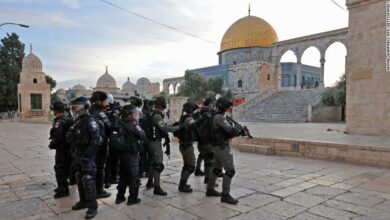
The largest revolutionary alliance will not feature heavily in the “revolution’s parliament,” but the process that is putting it in place is helping many of the young parties in the Revolution Continues Coalition (RC) gain exposure and experience, members say.
Preliminary results of the first round of the 2011 parliamentary elections indicate that overall, RC electoral lists will finish behind the Muslim Brotherhood’s Freedom and Justice Party (FJP), the newly-formed Salafi Nour Party, the 28-year-old New Wafd Party, the 16-year-old Brotherhood offshoot Wasat Party, and the newly-formed Egyptian Bloc, backed by billionaire Naguib Sawiris.
RC members believe that each of the above parties enjoys a critical strategic advantage over them that naturally gives them the lead in the polls. “The groups that beat us in the polls are more experienced politically, are able to tap into the religious emotions of people, and are well-funded. We do not have any of that,” said Abdel-Ghaffar Shokr, a member of the Socialist Popular Alliance, the RC’s flagship party.
In Cairo, the alliance expects to win between 3 and 5 percent of votes, which would make it very difficult to win any seats on the electoral lists. They have, however, already guaranteed themselves one of the individual seats in Cairo with Amr Hamzawy, founder of the Egypt Freedom Party. Outside Cairo, they seem poised to win at least one seat in the Fayoum Governorate and have their hopes pinned on one seat in Alexandria.
“The results are within our expectations — we are not a heavyweight in politics and are comprised of nascent parties,” said Yahya Fikry, an RC campaign manager. He admitted that they did have higher hopes for southern Cairo though.
Although it is comprised of mainly left-leaning groups, the RC boasts one of the most diverse array of actors. Besides the Socialist Popular Alliance, it also has new political parties such as the Egyptian Current (comprised of a splinter group of former Muslim Brotherhood youth), the Egypt Socialist Party, and the Egypt Freedom Party. It also includes many revolutionary and activist groups that have made their names as points of reference since the 25 January Revolution, such as the Justice and Freedom Movement and the Coalition of Revolutionary Youth.
The Egypt Freedom Party and the Egyptian Current Party are on opposing sides of the political spectrum, as they are respectively social democratic/secular and leftist/Islamic. Members insist that this ideological divide does not represent a stumbling block in the alliance’s campaigning.
“This coalition is based on a desire to replicate a model of consensus building among different groups, on a desire to act as one to achieve the roles of the revolution,” said Shahir George, a founding member of the Egypt Freedom Party and a candidate. Alliance members agree on base issues of achieving social justice for the poor, assigning minimum and maximum wages, and ensuring the empowerment of Egyptians from every strata of society.
The November clashes and current Tahrir Square sit-in has also affected the outcome of the RC’s candidates in the elections, they say “We were the only political group participating in the elections that announced our alliance with the revolutionaries in Tahrir, which absorbed much of our energy and focus in the critical pre-elections week,” said Yasser al-Hawary, parliamentary candidate and member of the Justice and Freedom Movement.
Hawary and many other RC candidates, such as Hamzawy, stopped campaigning during the height of the clashes on 19 and 20 November.
A majority of candidates claim to have encountered severe financial difficulties campaigning, despite Hamzawy's announcement of a campaign fund of around LE250,000, still around half of the allowed limit.
“Most young candidates funded the campaigns from their pockets,” Hawary said.
The majority of RC member groups formed in Cairo recently, and were not able to form a robust presence in other governorates. In the coming two rounds, the groups are hoping for results in Sohag, Beheira, Aswan, and Sharqeya governorates. They have yet to form a nationwide campaign, and probably will not be able to in time. “We will unfortunately need to rely mainly on the strength of each candidate in his constituency,” Shokr said.
Despite small irregularities in the run-up to the elections and individual complaints about FJP and Nour Party candidates allegedly using religious spaces for campaigning and campaigning in front of polling stations, most RC representatives agree that in general, the elections were free and better organized.
“Our political differences and our belief that the FJP made strides forward based on political opportunism does not mean we do not accept the results and that they actually won a majority,” Fikry said.
Looking forward, the RC sees the silver lining in their participation in these elections. “We’re getting known and creating a buzz through interaction with people despite the fact that most of the parties involved have yet to be officially incorporated,” said George. The Socialist Popular Alliance itself only submitted their official incorporation papers on 9 October. The Egypt Freedom Party will be announcing their incorporation only after the elections, and their candidates ran as independents.
“Our main gain from these elections is that people know that the struggle to achieve the goals of the revolution will be continued by this group even after the revolution’s main events,” George said.




